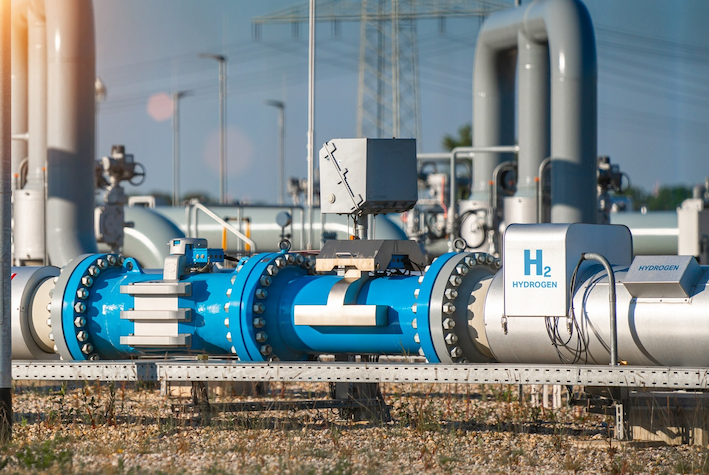America’s energy experts are turning to hydrogen as a major part of their country’s low-carbon future, as investors move away from traditional fossil fuel companies, and governments all over the world seek ways to decarbonise their economies.
Despite outdated perceptions of being cost-prohibitive Hydrogen use has been underway for years, as a carbon-free fuel for applications including power generation, energy storage, manufacturing and vehicle transportation amongst others.
Now that the Biden administration has rejoined the Paris agreement nothing stands in the way of the creation of an increasingly robust hydrogen fuel industry in the U.S., with the support needed to lower costs by rapidly scaling up the already buzzing hydrogen activity.

Private sector investment in Hydrogen has seen massive growth in the industry
Despite the pandemic there has been massive growth of new businesses built around the universe’s most abundant element in the last year, as the private sector invests in the hydrogen fuel industry.
“There’s a real opportunity in clean energy, enabling transportation with zero emissions and a clean grid, energy storage and industrial applications.” said Sunita Satyapal, director of the U.S. Department of Energy’s Hydrogen and Fuel Cell Technologies Office.
“While hydrogen offers a tremendous opportunity for the U.S. to meet its climate change goals, we need to focus on reducing the cost. One of the advantages of hydrogen is its ability to provide benefits across applications and across sectors.”
Europe is ahead of the United States in establishing its hydrogen economy, although that is thought to be down the previous U.S. administration for whom climate change was not a priority. This will now shift.
Alongside 200 other participating nations in the Paris Climate Agreement, the U.S. has agreed to restructure its economy to achieve net zero greenhouse gas emissions by 2050. The agreement sets a target of a 1.5 degrees Celsius limit on Global Warming.
Hydrogen industry will involve the biggest names in energy
Established oil and gas titans, such as BP and Chevron, Shell and ExxonMobil, to industrial gas firms, such as Linde and Air Liquide, through to technology players and industrial manufacturers, like Siemens and GE have all made initial plays in the emerging hydrogen fuel industry.

The biggest players in energy are already making moves into the Hydrogen industry
By using the existing energy infrastructure already in the ground, hydrogen can in theory be produced and transported to create an integrated energy system. Of course this will not only require huge resource and massive government support alongside continued private investment, but it also represents a golden opportunity for creating and sustaining vast numbers of ‘green jobs’ as skilled work in the renewable energy sector becomes more valuable than ever.
Green Hydrogen production is the key to unlocking the Hydrogen economy
Biden has committed to “ensure that the market can access green hydrogen at the same cost as conventional hydrogen within a decade”. Green hydrogen means it has been made using renewable energy sources such as wind to power electrolysis (the process of splitting H20 back into its component parts enabling the extraction of ‘clean’ hydrogen), as opposed to being a by-product of carbon burning methods.

Wind energy is required to manufacture clean ‘green hydrogen’
DOE’s Hydrogen and Fuel Cell Technologies Office is developing the H2@Scale programme which “explores the potential for wide-scale hydrogen production and utilization in the United States, to enable resiliency of the power generation and transmission sectors.”
As part of the H2@Scale program, two consortia were launched; the Million Mile Fuel Cell Truck – to push forwards fuel-cell truck technology, and the H2NEW – advancing research into hydrogen production methods.

Huge numbers of ‘green jobs’ will be created by the blossoming Hydrogen industry
“With our funding we have already helped to enable 1,100 U.S.patents, which have resulted in the development of about 30 commercial hydrogen-production and fuel-cell technologies. Another 60 or more DOE-funded projects could reach commercial development in the next few years”, says Sunita Satyapal.
For more about Ryse Hydrogen click here…






